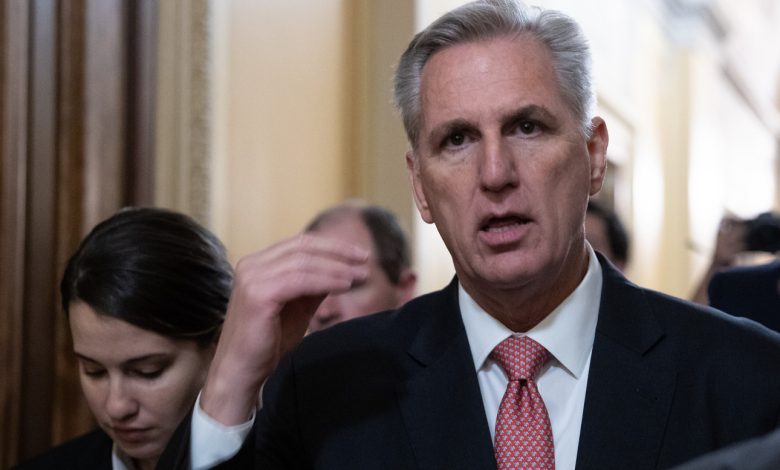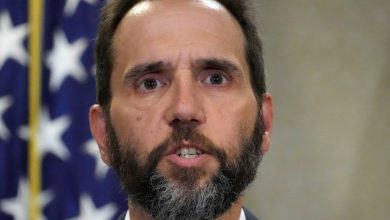Here are the 7 Things in Biden’s Debt Limit Deal That Have Conservatives Saying McCarthy ‘Caved’

President Joe Biden and House Speaker Kevin McCarthy have reached a late-night deal to address the impending debt ceiling crisis and address Republican demands for spending cuts. While the agreement has managed to avert a default just days before it could occur, its fate remains uncertain in Congress due to criticism from both progressive Democrats and hardline Republicans.
House Speaker McCarthy plans to schedule a vote on the bill, which he has dubbed “The Fiscal Responsibility Act,” for Wednesday.
Here are seven key points from the preliminary debt ceiling deal that, when taken together, have many conservatives arguing that McCarthy ‘caved’:
- Debt ceiling raised until 2025: The tentative agreement raises the debt limit, ensuring that the government can continue to borrow funds without risking default until the end of 2024.
- Two-year spending caps: The deal establishes annual discretionary spending caps for two years. Non-defense spending levels will remain flat next year and increase by 1% in 2025. However, funding for domestic programs, excluding Social Security and Medicare, will remain unchanged next year.
- Changes to work requirements for welfare programs: The agreement includes expanded work requirements for certain welfare programs, such as the Supplemental Nutrition Assistance Program. Able-bodied adults aged 54 or younger without dependent children will face time limits on receiving food stamps if they fail to meet work requirements. However, the deal expands food benefits for homeless individuals and veterans while leaving Medicaid untouched.
- Partial reduction of IRS funding: In response to Republican concerns, the deal rolls back $10 billion of the $80 billion in IRS funding approved last year to crack down on tax evasion by wealthy individuals and corporations.
- Rescinding unspent COVID-19 relief funds: The agreement includes provisions to claw back unspent COVID-19 relief funding approved during both the Biden and Trump administrations. The rollbacks would affect various programs, including cutting $400 million from the CDC’s Global Health Fund.
- No changes to taxes on the wealthy or corporations: The deal does not address tax changes, leaving intact former President Donald Trump’s 2017 tax cuts for the wealthy and corporate tax loopholes. President Biden’s push for increased taxes on the wealthiest Americans and corporations will likely become a central focus of his reelection campaign.
- Inflation Reduction Act and student loan forgiveness maintained: The White House successfully preserved the Inflation Reduction Act, which focuses on climate and prescription drug policies, as well as the president’s program for student loan forgiveness. These initiatives faced potential elimination in the legislation passed by the GOP-controlled House last month. However, borrowers who received payment pauses during the pandemic will be required to resume payments after the Supreme Court reviews Biden’s student loan forgiveness program.
With the debt ceiling crisis averted for now, attention will turn to the congressional vote on the deal, where its fate remains uncertain due to opposition from both progressive Democrats and hardline Republicans.
Speaker McCarthy on Sunday defended offering the debt limit deal in exchange for more government spending.
.@SpeakerMcCarthy defends offering a higher debt ceiling in exchange for increased govt spending: “We let government grow, but at a slower rate” pic.twitter.com/ZErpivTNhY
— Tom Elliott (@tomselliott) May 28, 2023
“We let government grow, but at a slower rate,” McCarthy said.


